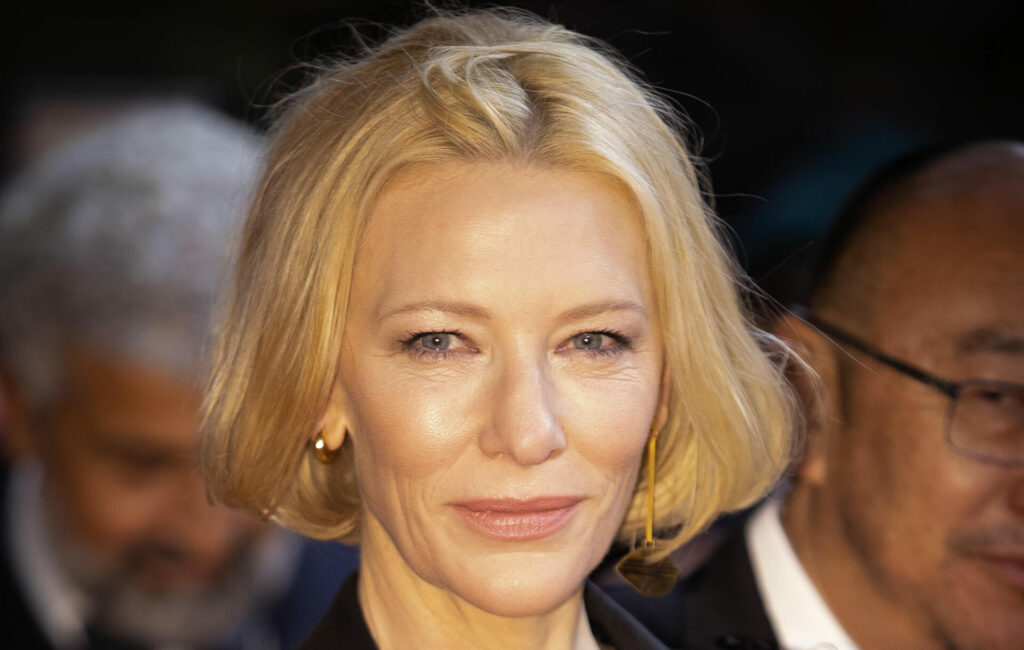Cate Blanchett hits back at criticism of Tár as ‘anti-woman’
Leading conductor Marin Alsop was "offended" by the Oscar-tipped movie
By Joe Goggins

Cate Blanchett has hit back at suggestions that her latest film is “anti-woman”.
The Australian’s powerhouse performance in Todd Field’s psychological drama Tár scooped her the Golden Globe for Best Actress in a Motion Picture Drama on Sunday (April 8), which positions her as the frontrunner for this year’s Academy Award for Best Actress; her turn has won rave reviews across the board. Blanchett plays the title character, Lydia Tár, a leading female classical conductor whose career and personal life spiral into chaos.
In an interview with The Sunday Times last week, Marin Alsop, herself a prominent female conductor who was the first woman to win the prestigious Koussevitzky Prize, criticised the film. “So many superficial aspects of Tár seemed to align with my own personal life,” she said. “But once I saw it I was no longer concerned, I was offended: I was offended as a woman, I was offended as a conductor, I was offended as a lesbian.”
Among the movie’s plot lines is a meditation on the abuse of power that sees Tár use her status and sexuality to exert coercive control over a vulnerable assistant. Reflecting on that strand, Alsop went on: “to have an opportunity to portray a woman in that role and to make her an abuser — for me that was heartbreaking. I think all women and all feminists should be bothered by that kind of depiction because it’s not really about women conductors, is it? It’s about women as leaders in our society. People ask, ‘Can we trust them? Can they function in that role?’ It’s the same questions whether it’s about a CEO or an NBA coach or the head of a police department.”
“There are so many men — actual, documented men — this film could have been based on but, instead, it puts a woman in the role but gives her all the attributes of those men,” Alsop continued. “That feels anti-woman. To assume that women will either behave identically to men or become hysterical, crazy, insane is to perpetuate something we’ve already seen on film so many times before.”
Now, Blanchett has addressed the criticism. Speaking in an interview with BBC Radio 4 yesterday (January 12), the Oscar winner said, whilst stressing her “utmost respect” for Alsop, that Tár is a treatise on “the corrupting nature of power,” saying: “I think that power is a corrupting force no matter what one’s gender is. I think it affects all of us. It’s a very provocative film and it will elicit a lot of very strong responses for people.”
“What [Field] and I wanted to do was to create a really lively conversation,” Blanchett continued. “So there’s no right or wrong responses to works of art. It’s not a film about conducting, and I think that the circumstances of the character are entirely fictitious. I looked at so many different conductors, but I also looked at novelists and visual artists and musicians of all stripes. It’s a very non-literal film.”
“I don’t think you could have talked about the corrupting nature of power in as nuanced away as Todd Field has done as a filmmaker if there was a male at the centre of it because we understand so absolutely what that looks like,” she concluded. “I think that power is a corrupting force no matter what one’s gender is. I think it affects all of us.”
Blanchett leads the betting for Best Actress at both the BAFTAs and Oscars. She has won the former award twice, for Elizabeth in 1999 and Blue Jasmine in 2013, and the latter once, again for Blue Jasmine.
